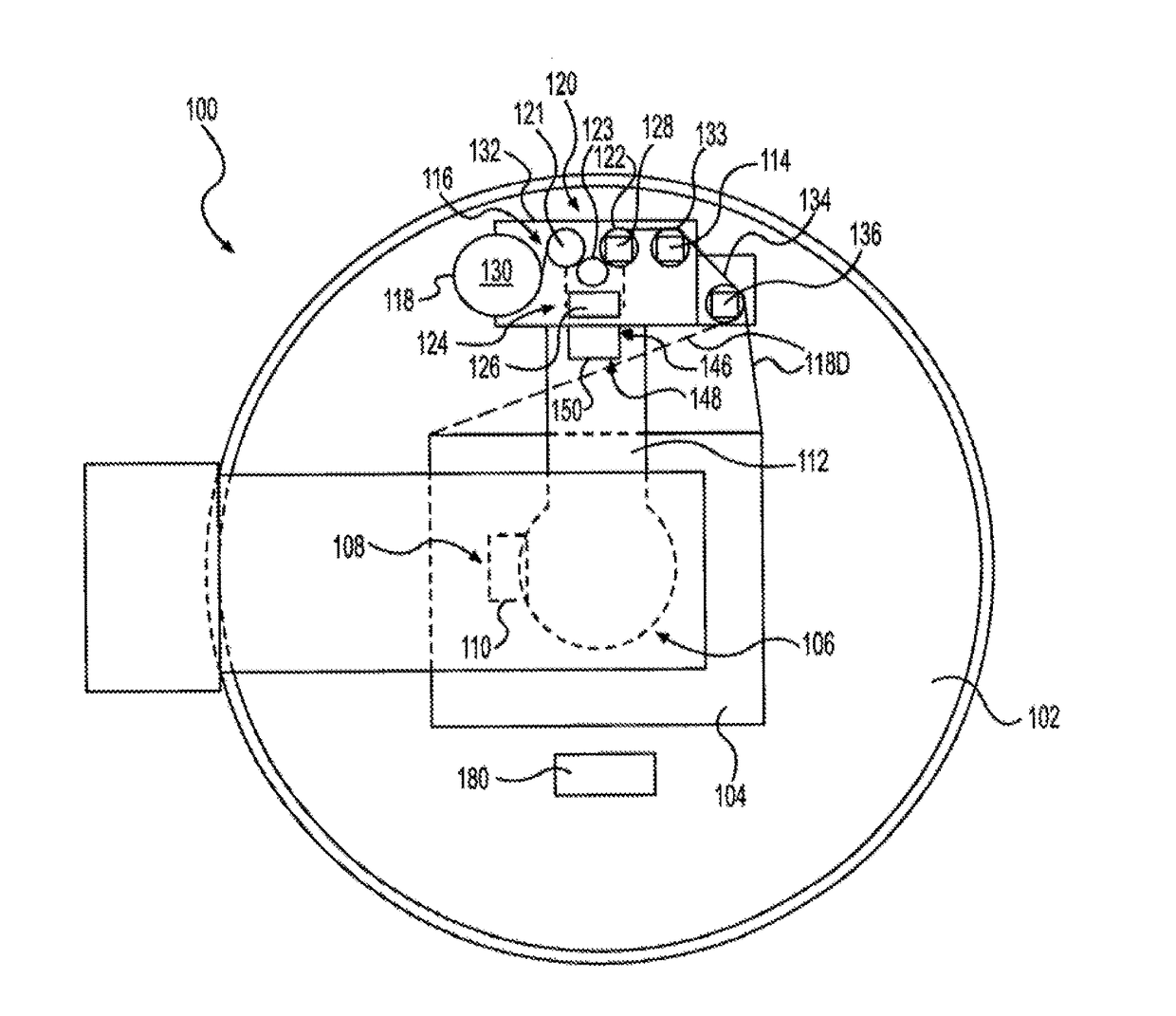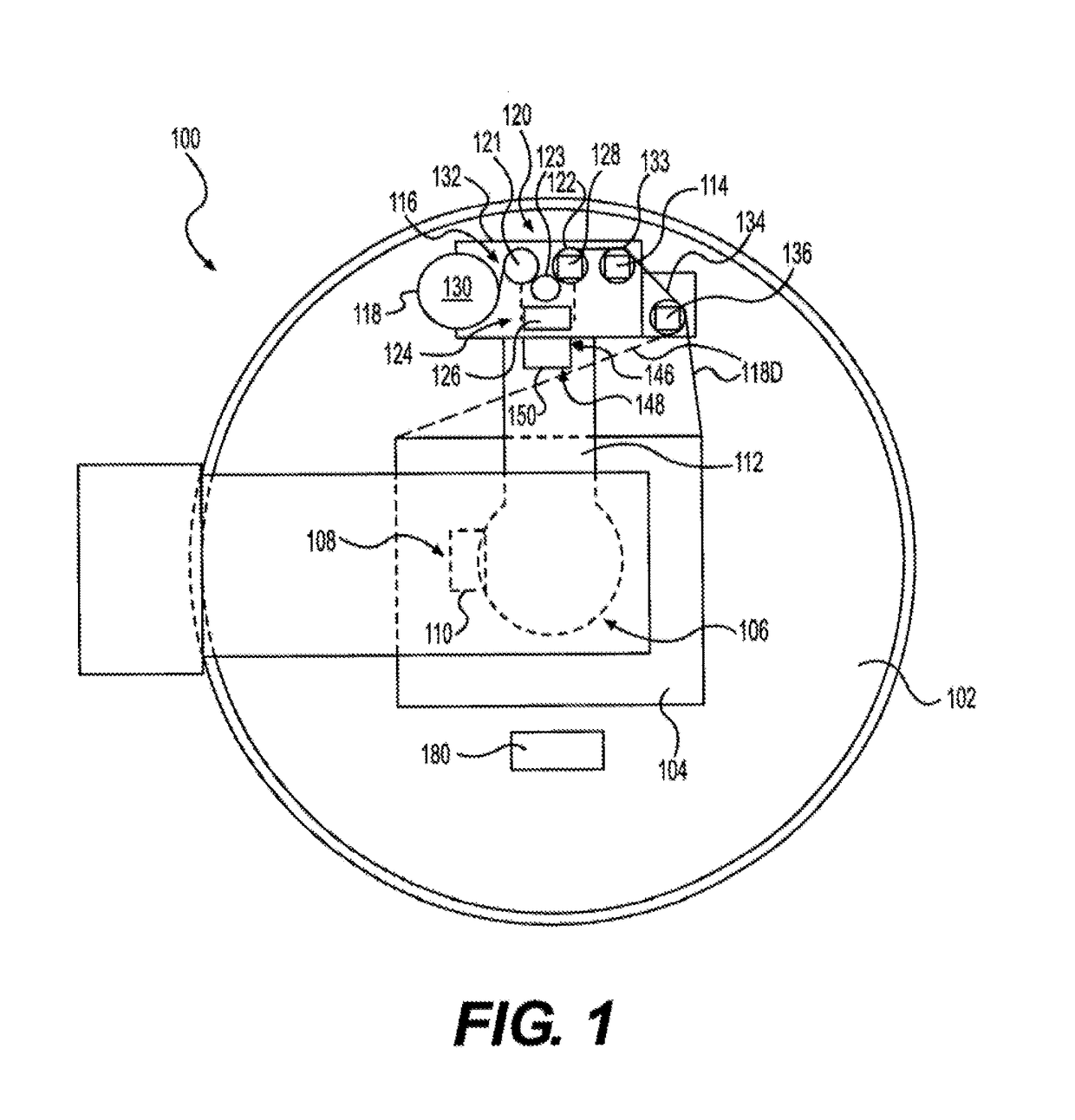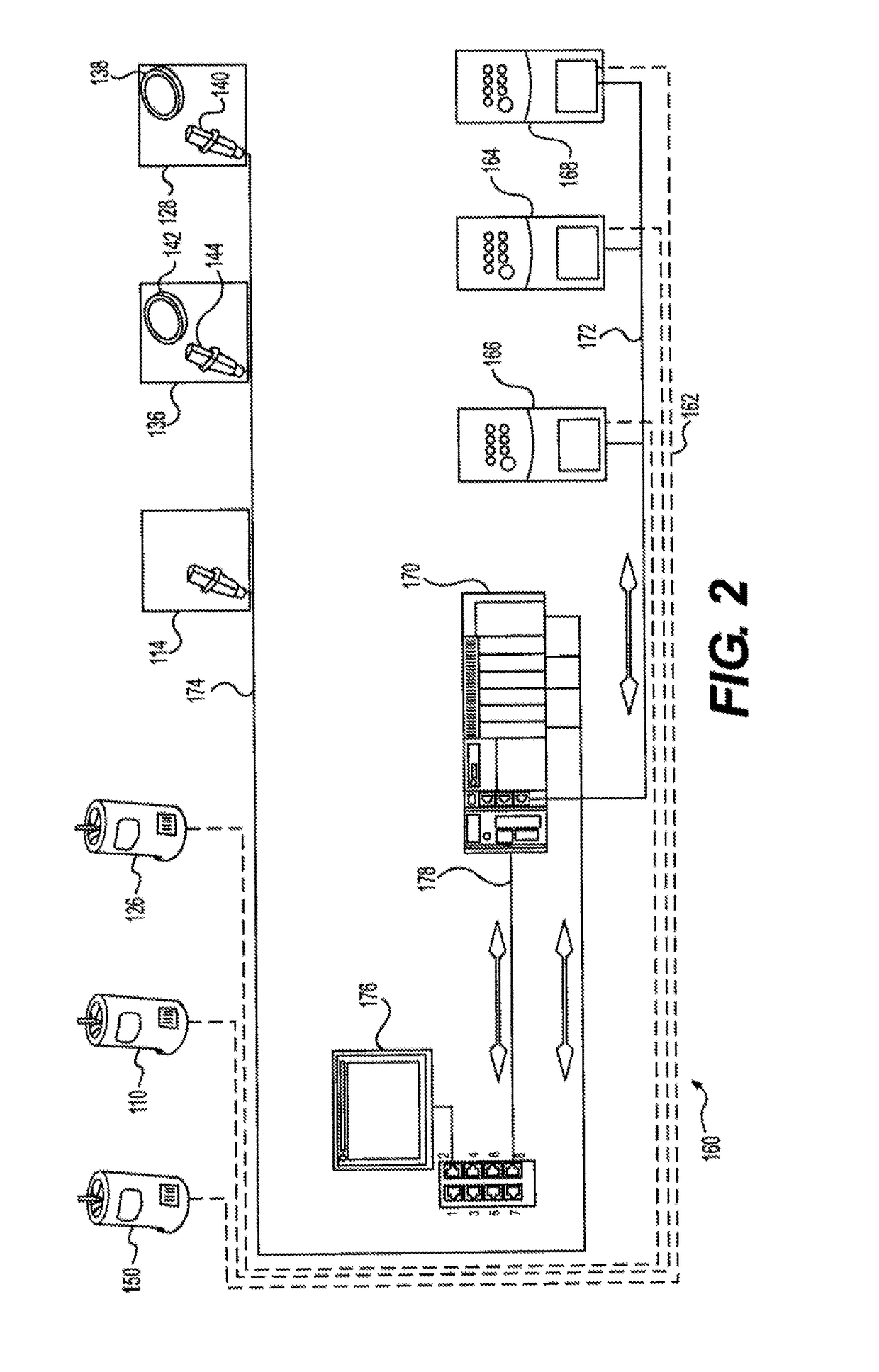Demand Based Wrapping
a demand-based wrapping and load technology, applied in the directions of packaging, transportation and packaging, wrapping, etc., can solve the problems of excess packaging material supply, loosely wrapped loads, packaging material breakage,
- Summary
- Abstract
- Description
- Claims
- Application Information
AI Technical Summary
Problems solved by technology
Method used
Image
Examples
Embodiment Construction
[0024]Reference will now be made in detail to present embodiments of the disclosure, examples of which is illustrated in the accompanying drawings. Wherever possible, the same reference numbers will be used throughout the drawings to refer to the same or like parts. The disclosures of each of U.S. Pat. No. 4,418,510, entitled “STRETCH WRAPPING APPARATUS AND PROCESS,” and filed Apr. 17, 1981; U.S. Pat. No. 4,953,336, entitled “HIGH TENSILE WRAPPING APPARATUS,” and filed Aug. 17, 1989; U.S. Pat. No. 4,503,658, entitled “FEEDBACK CONTROLLED STRETCH WRAPPING APPARATUS AND PROCESS,” and filed Mar. 28, 1983; U.S. Pat. No. 4,676,048, entitled “SUPPLY CONTROL ROTATING STRETCH WRAPPING APPARATUS AND PROCESS,” and filed May 20, 1986; U.S. Pat. No. 4,514,955, entitled “FEEDBACK CONTROLLED STRETCH WRAPPING APPARATUS AND PROCESS,” and filed Apr. 6, 1981; U.S. Pat. No. 6,748,718, entitled “METHOD AND APPARATUS FOR WRAPPING A LOAD,” and filed Oct. 31, 2002; U.S. Patent Application Publication No. ...
PUM
| Property | Measurement | Unit |
|---|---|---|
| distance | aaaaa | aaaaa |
| length | aaaaa | aaaaa |
| speed | aaaaa | aaaaa |
Abstract
Description
Claims
Application Information
 Login to View More
Login to View More - R&D
- Intellectual Property
- Life Sciences
- Materials
- Tech Scout
- Unparalleled Data Quality
- Higher Quality Content
- 60% Fewer Hallucinations
Browse by: Latest US Patents, China's latest patents, Technical Efficacy Thesaurus, Application Domain, Technology Topic, Popular Technical Reports.
© 2025 PatSnap. All rights reserved.Legal|Privacy policy|Modern Slavery Act Transparency Statement|Sitemap|About US| Contact US: help@patsnap.com



